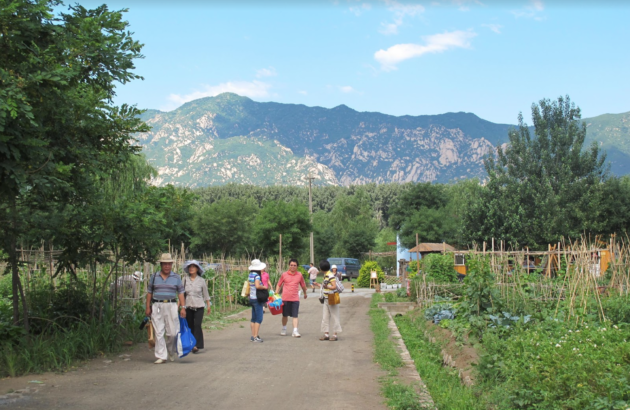
Little Donkey Farm, China
With the development of urbanisation and industrialisation in China, rural land is occupied for commercial values, and people living in the cities are isolated from fresh agricultural products. Meanwhile, because of the abuse of chemical inputs, food security problems are becoming more evident. Building a sustainable food system with social-economic value seems to be more urgent.

beginning of planting season (source: LAF magazine www 2017)
Different frontier concepts were introduced into China since the 1990s, for example allotment garden (United Kingdom), Schrebergarten or Kleingarten (Germany) and Community garden (United States), which also led to a misreading about all these conceptions. After discussion with Katrin, we found the essential differences among these conceptions, which I think will be useful for research in China. I would like to explore the differences between these similar concepts in different parts of the world in another blog later. Here, I will introduce the Community Supported Agriculture (CSA) model as practiced in China using the Little Donkey Farm CSA as example. My interest in this project had been triggered when reading a paper by a Chinese researcher on the CPUL concept.

Little Donkey Farm provides the opportunity for people to grow their own organic produce. (image: LAF magazine www 2017)
Little Donkey Farm was established in April 2008 and occupies about 15ha in Houshajian West village, Beijing, China. It is the first CSA in Beijing. Three kinds of work-sharing programs – DIY farming, trust land and VIP family garden – provide plots according to the different situations of each family. The production coming from one’s own plot can be delivered to one’s door once or twice a week depending on individual needs. Different lessons are provided to teach citizens the techniques of how to plant their “own” land.
Little Donkey Farm CSA is also engaged in community involvement by education, production and entertainment for children to play in a healthy environment and living in harmony with nature.

Members purchase plots on Little Donkey Farm in order to use the land how they wish (source: Little Donkey Farm 2022)
+++ researched and written by our colleague Dong Chu +++
For further information see the project’s own website.
Image: Little Donkey Farm operates with a member system. (source: Guo Ping 2022)
Back to previous page Related information and design projects
